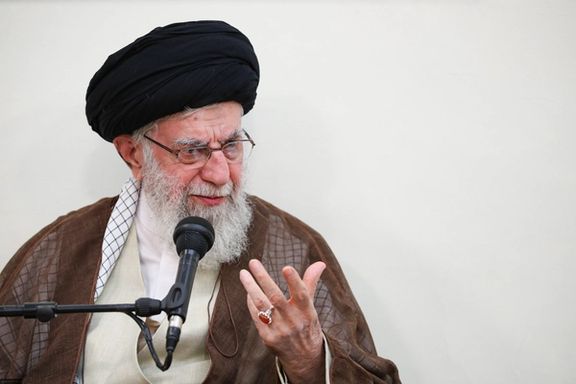Speaking on Wednesday, Khamenei underscored that any non-tactical retreat—be it military, political, or economic—invites "divine wrath," as per the Holy Quran.
Ismail Haniyeh, the political chief of Iran-backed Hamas, was killed in Tehran last month while attending the inauguration ceremony of the new president. He had boasted of his freedom of movement as he strolled around Tehran just hours before his assassination.
Iran has subsequently been biding its time as it weighs retaliation. "Governments that yield to the demands of today's dominant powers, regardless of the size or strength of the nations they represent, could defy these pressures if they draw on the strength of their people and accurately assess their adversaries' true, unembellished capabilities," Khamenei said.
He further criticized the longstanding habit of “exaggerating” enemy capabilities to instill fear, pointing to what he described as US, British, and Israeli efforts since the 1979 Islamic revolution in Iran.
Meanwhile, Iran has been leveraging its own psychological tactics, building suspense by threatening retaliation over Haniyeh's killing, yet refraining from immediate action.
Some believe that the Islamic government is apprehensive about escalation but uses the threat of an attack on Israel to get concessions from the United States, which has committed itself to preventing a wider conflict. On Thursday, President Joe Biden indicated that a Gaza ceasefire can prevent Iran's potential retaliation, while Hamas can use a cessation in hostilities to regroup and avoid a complete defeat.
As Western powers caution Iran against retaliation, urging restraint to prevent escalating regional tensions and to facilitate the release of over 100 hostages held by Iran-backed Hamas amid the ongoing conflict in Gaza, Iranian authorities have dismissed the warnings as "illogical and excessive."
Tehran has asserted its right to retaliate for the killing of the Hamas political chief in Tehran without seeking external permission.
Nasser Kanaani, the spokesperson for Iran's Ministry of Foreign Affairs, criticized Western nations for their "apathy," claiming it has allowed Israel to commit "a myriad of international crimes, including genocide and war crimes," in the Gaza war, all while remaining "unpunished."
Meanwhile, Iran-backed Hamas is threatening to boycott the latest ceasefire talks as the possibility of an Iranian retaliation looms.
Iran's new president, Masoud Pezeshkian, also has reaffirmed Iran's right to retaliate, publicly aligning with the Supreme Leader's stance, though it is alleged that he privately expressed concerns about the impact of escalation and urged Khamenei to reconsider.
Iran's President acknowledged that war is undesirable but affirmed the right to "punitive responses against an aggressor," according to IRNA.
Meanwhile, Israel's Army Radio reported that Israel warned the US and European nations that any direct aggression from Tehran would trigger an Israeli strike on Iranian territory, emphasizing their intent to retaliate, even without Israeli casualties.







